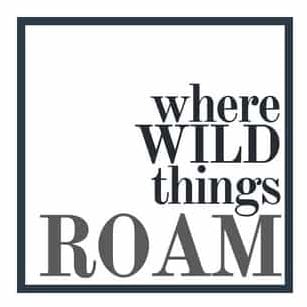Trekking Rwanda’s rare mountain gorillas
Gorilla trekking is definitely one of a few dramatic wildlife experiences you can have and there is no place better to do this than Rwanda.
It is a rare experience that will bring you up close with endangered mountain gorillas in the wild. With no single mountain gorilla in captivity, Rwanda is a must visit if you are looking to the golden opportunity of sitting amongst gorillas in the mists of Central Africa.
Being such an ultimate wildlife experience, there are a few things you need to consider before going on a gorilla trek. Like with any wildlife experience, you want to ensure you are engaging in a sustainable and well managed practice that ensures the safety and conservation of the animal first and foremost.
There are only two populations of mountain gorillas left in the world, numbering about 1,000 in total. The first lives in the Virunga volcanic mountains of Central Africa, with groups scattered between Uganda, Rwanda and the Democratic Republic of the Congo. The second lives deep in Uganda’s Bwindi Impenetrable National Park, a UNESCO World Heritage Site in the country’s southwest.

Choosing to gorilla trek in Rwanda is most certainly the best choice. Rwanda’s tourism strategy has always focused on two important areas, sustainability through responsible tourism and conservation and community involvement.
This means there is a focus on protecting the natural heritage and providing world class experiences that highlight the diverse natural beauty of Rwanda while ensuring that Rwandans benefit from tourism and conservation.
Thanks to the conservation efforts, the country has been able to improve the gorilla trekking experience for visitors and also increase the amount of support given to the local communities through the revenue sharing program.
Gorilla trekking permits


To take part in gorilla trekking in Africa, a permit is mandatory. In Uganda it currently costs USD600 (increasing to USD700 from 1 July 2020). Rwanda charges USD1500 for a gorilla trekking permit and while this is considerably more, there is differences you should consider when deciding where to trek.
Yes, Uganda is a cheaper option from initial look, however you need to ask yourself where that tourism dollar is being spent. Uganda will take more groups of trekkers to visit each gorilla family per day where Rwanda will only allow one group to visit.
In 2018, Rwanda Development Board (RDB) sold 15,132 gorilla permits worth US$19.2 million, a 25 percent increase compared to 2017. In 2016, before the increase in the permit price, RDB sold 22,219 permits worth US$15 million.

This year, using the park revenues in 2018, RDB distributed RWF1.4 billion (over US$ 1.5 million) in total to the revenue share program. This was up from RWF 741 million (over US$795,000) in 2017. This program, initiated in 2005 by the Government of Rwanda, aims to guide investment in the areas surrounding the various national parks in Rwanda by ensuring that 10 percent of all park revenues is given back to the communities. These projects have assisted in clean drinking water, health centres, classrooms and housing to members of the communities living around the three national parks; Akagera National Park, Nyungwe National Park and Volcanoes National Park.
Volcanoes National Park is home to 10 mountain gorilla groups and each group can only have 1 group of 8 people visiting a day for only 1 hour. A permit will cost you USD$1500 for Non-Residents, East African Residents, East African Citizens, Rwandan Residents, Rwandan Citizens.
If you are visiting other national parks in Rwanda, you can get a 30% discount (bring the cost to US1,050) on gorilla permits. The visit can include Akagera National Park and Nyungwe National Park, for 3 days and more during the low season of November – May.

If you wanted an exclusive, private gorilla trek, it will cost USD15,000 for an entire group with an exclusive personalized tour guide service. For the ultimate gorilla trekking experience, US30,000 will get you a minimum of 3 visitors for 3 consecutive days on a behind the scenes experience.
When planning to go gorilla trekking in the Volcanoes National Park it is recommended you purchase a permit prior to arrival as they book out fast. Make sure you book your permit at least 3 months prior to your actual trek, as permits are limited to just a few people each day and demand is typically high. Permits can be obtained through a trustworthy tour operator or through the Rwanda Development Board by emailing: reservation@rwandatourism.com or phoning +252 57 65 14.
When to go gorilla trekking

To ensure a successful gorilla experience, like anywhere in Africa, the two most significant seasons you need to consider are the wet and dry seasons – and each comes with their own advantages and disadvantages. During the two dry seasons –June to September and December to February, rainfall is very low and the gorilla habitat remains relatively dry, making it easier to hike through Volcanoe National Park’s dense vegetation and steep slopes in search for these unique creatures.
The wet seasons – running from March to May and again from October to November, are characterized by heavy rainfall, ensuring that trekking is much more challenging. On the upside, however, more plentiful food during this period makes it a little easier to locate gorillas in their usual habitat, unlike the dry season where the limited food supply makes them move much further afield in search of something to eat.
The experience

Gorilla trekking is arguable one of the best wildlife experiences you can get. It will open your eyes to these incredible animals and make you more aware of the need to protect and conserve them. The actual thought of trekking a mountain in such wild conditions can be daunting to some. It is designed to be accessible for everyone and you go at your own pace.
Groups will be broken up into physical fitness capabilities – easy, moderate and hard. You will be supported along the way with experienced guides and rangers. It is recommended that you hire a porter before the trek. This will cost you approximately USD15 and worth every cent. The porters will help you not only carry your gear but will be there every step of the way to navigate the tricky parts to climb.

To engage in a gorilla trekking experience, it is paramount to be respectful of the very animals you are there to see. Keep to the set distance advised by your guides. Remain quiet and calm at all times to minimise impact on your time around the gorillas. Most importantly, do not trek if you are suffering from any illness. Gorillas are very susceptible to viruses and disease, so don’t go risking the lives of these gorillas if you are not well.
Packing for gorilla trekking

In preparation for your gorilla adventure, it’s important to pack appropriately. A number of companies operating in Rwanda will have options to hire gear, such as gators, jackets, boots and more. If you wish to take your own gear, the following items are essential.
- Sturdy, waterproof hiking shoes to help you navigate rocky, and often, slippery surfaces. Remember the trails can be muddy and slippery – especially during the rainy season.
- Insect repellent.
- Gardening gloves can come in handy when the gorillas are ranging within sparky, thorny and stinging vegetations.
- A good camera to capture the best shots.
- Long sleeved shirts and long pants to protect you from the cold and stinging nettles.
- A Waterproof backpack to protect your camera and other fragile items.
Where to stay

There are quite a few lodges and accommodations near Volcanoes National Park and in Ruhengeri town, offering accommodation for different levels; Budget / basic accommodation, deluxe / Mid range and Luxury / High-end accommodation. It is certainly recommended to stay out near the National Park as the gorilla trekking has an early morning start and you will want to be waking up fresh and ready for the trek.
The luxury offering in the area includes Wilderness Safaris’ Bisate Lodge, Singita’s Kwitonda Lodge and Kataza House and the soon to open One&Only Gorilla’s Nest. Other lodges in the area include Classic Lodge Musanze, Sabyinyo Silverback Lodge, Virunga Safari Lodge, Mountain Gorilla View Lodge, Le Bambou Gorilla Lodge and Gorillas Volcanoes Hotel.
If you wanted to experience Gorilla Trekking in Rwanda, Where Wild Things Roam Travel has itineraries that give directly back to the very conservation of the gorillas you will see.
Email hello@wherewildthingsroamtravel.com for more information.






